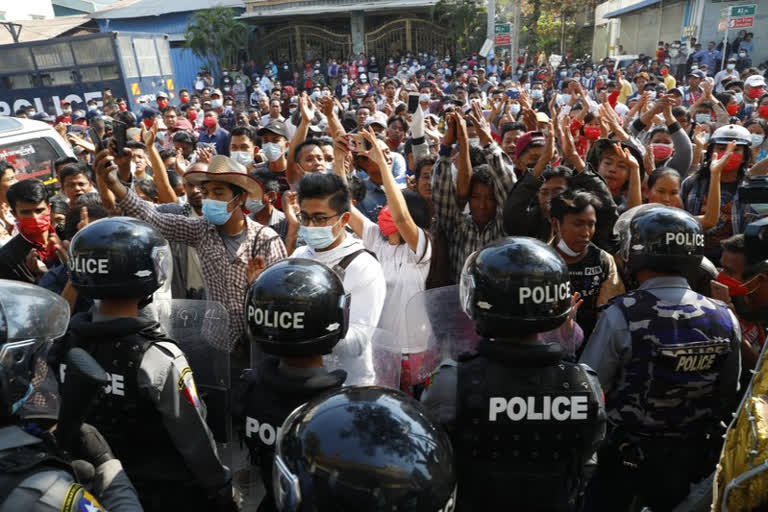Yangon: Mass street demonstrations in Myanmar entered their second week on Saturday with neither protesters nor the military government they seek to unseat showing any signs of backing off from confrontations.
Protesters in Yangon, the country’s biggest city, again congregated at Hleden intersection, a key crossroads from which groups fanned out to other points, including the embassies of the United States and China. They marched despite an order banning gatherings of five or more people.
Demonstrations also resumed in the second biggest city, Mandalay, with lawyers making up one large contingent.
The military ousted the country’s leader, Aung San Suu Kyi, and her government and prevented recently elected lawmakers from opening a new session of Parliament. Suu Kyi and other senior members of her government and party remain in detention.
The junta led by Senior Gen. Min Aung Hlaing said it was forced to act because Suu Kyi’s government failed to properly investigate allegations of fraud in last year’s election, which her National League for Democracy party won in a landslide. The election commission said there is no evidence to support the military’s claims.
Read:|Myanmar teenager, who was shot during anti-coup protests, succumbs to injuries
Saturday’s protests coincided with the birthday of Gen. Aung San, the country’s independence leader and father of Suu Kyi. His name and image have appeared on signs carried by some demonstrators.
Authorities have stepped up the arrests of politicians and activists, and in areas outside Yangon have become more aggressive in trying to break up protests.
According to the independent Assistance Association for Political Prisoners, at least 326 people have been detained since the coup, of which 303 remain in custody.
There have been many reports over the past three nights of raids during a curfew in which security personnel have tried to seize people from their homes.
